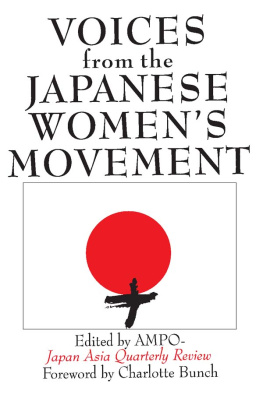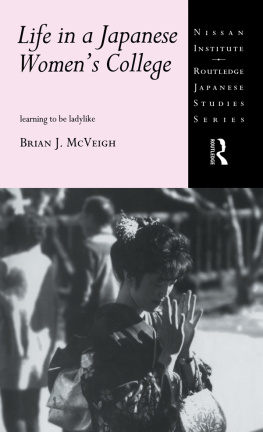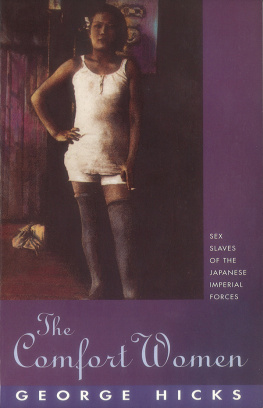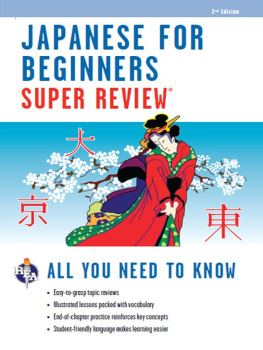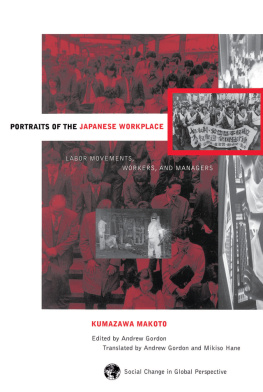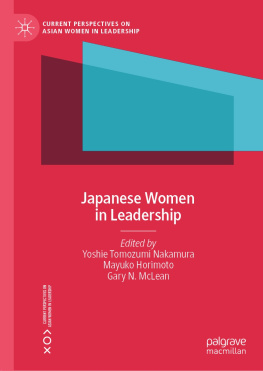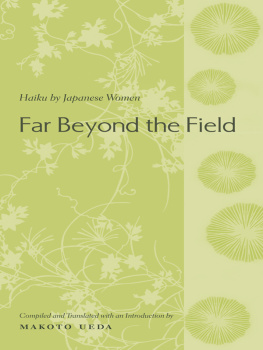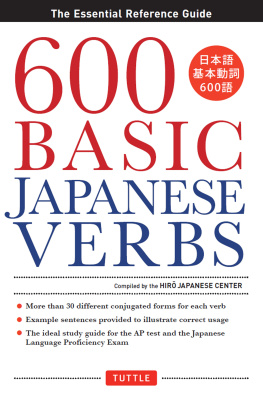An East Gate Book
First published 1996 by M.E. Sharpe
Published 2015 by Routledge
2 Park Square, Milton Park, Abingdon, Oxon OX14 4RN
711 Third Avenue, New York, NY 10017, USA
Routledge is an imprint of the Taylor & Francis Group, an informa business
Copyright 1996 Taylor & Francis. All rights reserved.
No part of this book may be reprinted or reproduced or utilised in any form or by any electronic, mechanical, or other means, now known or hereafter invented, including photocopying and recording, or in any information storage or retrieval system, without permission in writing from the publishers.
Notices
No responsibility is assumed by the publisher for any injury and/or damage to persons or property as a matter of products liability, negligence or otherwise, or from any use of operation of any methods, products, instructions or ideas contained in the material herein.
Practitioners and researchers must always rely on their own experience and knowledge in evaluating and using any information, methods, compounds, or experiments described herein. In using such information or methods they should be mindful of their own safety and the safety of others, including parties for whom they have a professional responsibility.
Product or corporate names may be trademarks or registered trademarks, and
are used only for identification and explanation without intent to infringe.
Library of Congress Cataloging-in-Publication Data
Voices from the Japanese womens movement/
edited by AMPO, Japan Asia quarterly review.
p. cm.(Japan in the modern world)
An East gate book.
Includes index.
ISBN 1-56324-725-9 (hardcover: alk. paper).
ISBN 1-56324-726-7 (pbk.: alk. paper)
1. FeminismJapan.
2. WomenJapan.
I. Ampo.
II. Series.
HQ1762.V65 1995
305.420952dc20
95-43512
CIP
ISBN 13: 9781563247262 (pbk)
ISBN 13: 9781563247255 (hbk)
Abe Hiroko is a member of Mizura, a space for women in Yokohama.
Arimura Junko is the vice chairperson of the Seikatsu Club.
Ehara Yumiko is a leading Japanese feminist theoretician and teaches at Tokyo Metropolitan University.
Fukuma Yuko is a Kawasaki City public servant.
Hara Minako is a professional translator and has long been in-volved in lesbian issues.
Hayashi Yoko, a lawyer, has long worked on the issue of human rights.
Hikita Mitsuko, a farmer, is a member of a rural womens net-work in Okitama, in northeast Japan. She was formerly on the editorial staff of AMPO.
Inoue Reiko is the director of the Pacific Asia Resource Center, the organization which publishes AMPO.
Ishiwatari Sadako is a member of the womens section of the Miura Fishermens Cooperative Association.
Kanai Yoshiko is the author of many books in Japanese, including Moving Mountains: Women and Feminism in Japan, which is scheduled to be published in English. She is a professor at Nagaoka Junior College.
Ann Kaneko is a freelance filmmaker and writer. She is cur-rently producing a documentary on foreign workers in Japan.
Keira Tomoko is a member of Yay Yukar Park.
Kim Pu Ja is a member of the Uli-Yosong Network on Comfort Women, which was founded by resident Koreans to resolve the issue of the military sex slaves.
Kitazawa Yoko is co-president of the Asia Pacific Resource Center and an editorial board member of AMPO.
Kondo Keiko and Makishita Noriko are members of the Womens Space in Sapporo, Hokkaido.
Matsui Yayori is the director of the Asia Japan Womens Resource Center and the author of many books, including one work in English, Womens Asia.
Murata Noriko, a member of the Asian Womens Association, has worked to support victims of smuggling.
Nakajima Michiko, a lawyer, has long been involved in the issue of womens labor rights.
Nakano Mami is a lawyer who has long worked on the issue of womens labor rights.
Okura Yayoi is a member of the ODA Research and Study Group based in Bangkok.
Ooishi Yoshino is a freelance photographer.
Sakurai Yoko is a member of the Forum Yokohama.
Suzuki Mieko is a member of the International Movement Against All Forms of Discrimination and Racism (IMADR).
Takaguchi Atsuko is a member of the Apron workers collec-tive.
Takazato Suzuyo, an assembly member from Naha City, has long been active in the issues of women and U.S. military bases.
Tomizawa Yoshiko is a member of the Suginami Ward assem-bly in Tokyo.
Yamazaki Hiromi is a member of a group supporting the legal suits filed by former comfort women.
Yunomae Tomoko, a freelance writer, is a member of a group investigating the problem of spousal violence.

